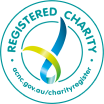- trigger asthma
- worsen heart disease
- reduce visibility and road safety.
The smaller the smoke particles, the greater the potential health impact may be.
What to do when it’s smoky outside
If you see or smell smoke outside, you should stay inside. But only if it’s safe to do so.
Remember to:
- keep your windows and doors shut
- switch your air conditioner to ‘recirculate’
- take a break from the smoky conditions – for example, visit a friend or go to a large air-conditioned location
- air out your house when the smoke clears
- look out for children, older people, and others at risk
- keep pets inside with clean water and food. Keep pets’ bedding inside if possible.
When it’s smoky, take care of your health, especially if you’re sensitive to air pollution. You can do this by:
- reducing physical activity
- following your treatment plan if you have a heart or lung condition
- following your asthma action plan
- seeing your doctor or calling NURSE-ON-CALL on 1300 606 024 if you’re worried about your symptoms
- calling 000 if you experience chest tightness or difficulty breathing.
If you’re in an area impacted by a bushfire, follow your bushfire plan.
For information about a specific fire or emergency incident, visit VicEmergency.
Face masks and P2 masks
It’s better to stay indoors away from the smoke, unless you can’t avoid being outside.
Ordinary paper dust masks, handkerchiefs and bandannas don’t filter out fine particles from smoke.
Special face masks called P2 masks filter smoke and give your lungs better protection. You can buy them from most hardware stores.
Before wearing a P2 mask, you should understand that:
- they can be hot and uncomfortable to wear
- they can make it harder for you to breathe normally
- if the seal around the face is poor, the mask won’t work as well
- if you usually have facial hair, your face should be clean shaven to get a good seal
- the masks don’t filter out gases like carbon monoxide.
If you have an existing heart or lung condition, seek medical advice before using a P2 mask.
This fact sheet from the Department of Health and Human Services Victoria has more information about smoke masks.
Pets, animals and smoke
Keep pets and animals inside with clean water, food and bedding if possible.
Ash and soot on animals may impact their health when they groom themselves. Wash them as you normally would with pet shampoo to remove anything covering their fur or feathers.
Signs of smoke inhalation in animals can include:
- coughing
- faster breathing rate or difficulties with breathing.
Contact a local vet if you have concerns about the health of your pets.
Contact the Department of Environment, Land, Water and Planning (DELWP) on 136 186 if you have concerns about the health of your animals.
Rainwater tanks
Don’t use water from your rainwater tank for drinking or bathing if it looks, smells or tastes unusual. This includes using rainwater for your pets.
More information about bushfires and your private drinking water supply is available from the Department of Health and Human Services (DHHS).
For information on rainwater tank quality, contact:
How to assess air quality and health risks
EPA measures air quality at different areas around the state. You can check current air quality at EPA Airwatch.
If you don’t have access to AirWatch, you can look at landmarks. They become harder to see when there’s smoke in the air.
CFA information on smoke
The CFA posted the following request on their Facebook page today: There is smoke in the Bendigo area. This is coming from nearby fires. Only if you see flames or columns of smoke please call 000. If you see smoke haze please check the CFA website http:/www.cfa.vic.gov.au/warnings-…/warnings-and-incidents/ or call the Victorian Bushfire Information Line on 1800 240 667 for warnings in the area.
Information from: epa.vic.gov.au
Last updated: January 2020.







